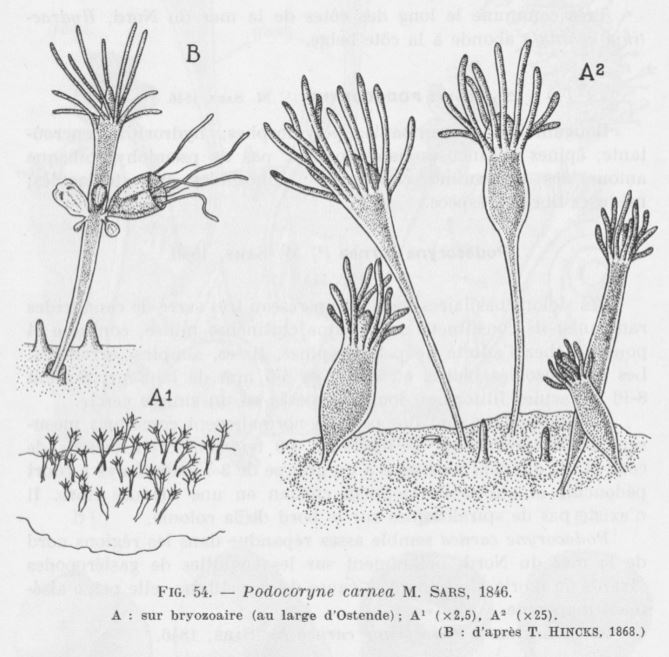No, plants don’t have collagen. So what’s that about “vegan collagen”?
Plants don’t need collagen. Water, cell membranes, and cell walls keep the plant erect while there is enough water. Take the water away and the plant wilts. We don’t. Then, what’s in Vegan Collagen Lash Serum & Primer? Obviously, there is no plant collagen but here is the list of ingredients.
Water, carnauba wax, stearic acid, glyceryl stearate, mica, oleic acid, hydroxyethylcellulose, alkyl hydroxystearoyl stearate, sr-hydrozoan polypeptide-1 (vegan collagen), tocopheryl acetate, panthenol, kaolin, lauroyl lysine, glycerin, silica, potassium sorbate, caprylyl glycol, glyceryl caprylate, sodium benzoate, ethylhexylglycerin, phenoxyethanol.
The protein here, sr-hydrozoan polypeptide-1 bears no relation to human collagen or to plants. It is a jellyfish protein fragment produced by fermentation in E. coli. Hydrozoans are jellyfishes related to Hydra and the Portuguese Man of War.

Figure: Podocoryna carnea
How on earth did a jellyfish protein end up in skincare products? No idea, it looks like a scientific project searching for any use; animal proteins produced by fermentation. Also, to call them collagen requires some imagination, in jellyfishes they make up fibrils that support hydrozoan cells but they have little in common with human skin collagen.
Another example of “if you can’t use it, sell it to women”.
Schmid, V., Bally, A., Beck, K., Haller, M., Schlage, W. K., & Weber, C. (1991). The extracellular matrix (mesoglea) of hydrozoan jellyfish and its ability to support cell adhesion and spreading. Hydrobiologia, 216-217(1), 3–10. doi:10.1007/bf00026436
Schmid, V. & A. Bally, 1988. Species specificity in cell-substrate interactions in medusae. Developmental Biol. 129:537-581
